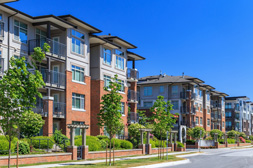Reasons to Invest in Waterfront Properties in the Comox Valley
A home on the water is an appealing option for any buyer. Homes in Canada that are situated on or ne…
From a residency point of view, if you plan to stay in Canada for 6 months or less each year, the government considers you a non-resident, which means that you can still open a bank account and buy property, etc. If you plan to live in Canada for more than 6 months per year, you must apply for immigrant status.
It is important to note, however, that while the majority of Provinces (British Columbia, Ontario, Quebec, Nova Scotia, Newfoundland, New Brunswick) have no restrictions on foreign ownership of real estate in Canada, some do limit the amount of property/land that a non-resident can purchase. On Prince Edward Island, non-resident buyers must apply to the Island Regulatory and Appeals Commission for land over 5 acres in size, or land with a shore frontage greater than 165 feet. In Manitoba, non-residents are prevented from owning farmland unless they actually plan to move there within 2 years. Non-residents may not own land over 10 acres in size in Saskatchewan, whilst in Alberta they may only own up to 2 plots of land not exceeding 20 acres in total.
Once you have chosen a REALTOR®, secured a mortgage and found your property, an offer is made and once accepted, a deposit is payable. When buying a house in Canada, an offer must be made in writing so that all aspects of the transaction are clearly outlined within the offer. Once you (the buyer) have signed the document, it becomes legally binding. If you withdraw from the offer at this stage, you may lose your deposit and may also be sued. Make sure that every item staying in the property, i.e. carpets, fixtures and appliances, is written on the offer as ‘chattels included’. Your REALTOR® should also insert two clauses stating that the offer will only proceed subject to building inspection and that you as the buyer are able to meet your financial obligations. Once your offer is complete, it will be presented to the seller and negotiations will be made. This may include changes in price, completion date and chattels. The changes are initialed by the seller and returned to you (the buyer) for your initials. The resulting Agreement of Purchase and Sale will state the purchase price and the deposit. The deposit is placed in a trust account and is credited towards the purchase price once the offer has been accepted by both the seller and the buyer and the transaction is complete.
Click the button below to view all of our listings in the Comox Valley, and take the next step to purchasing your dream home.

There are many reasons why you should consider jumping into the real estate market and buying a home. Below is a list of 9 reasons why you should seriously consider it.

Buying a residence can be a stressful experience. You will experience a roller coaster of emotions while finding the right place, securing the loan, and finally moving in.

Many people assume the difference between a condo and a house is that one has a yard and one typically does not. There is much more to it than just that, and it is…

Moving can be very exciting but it can also be very stressful as there are so many things to remember to do! Don’t despair; whether you are doing it on your own…

Click the button below to view a list of terms that are commonly used when working with mortgages.
If you’re ready to make the move to Vancouver Island and experience the wonders island living, click the button below to contact us at Royal LePage in the Comox Valley
Copyright 2020 Royal LePage in the Comox Valley | Real estate search engine optimization & real estate website design – by EstateVue